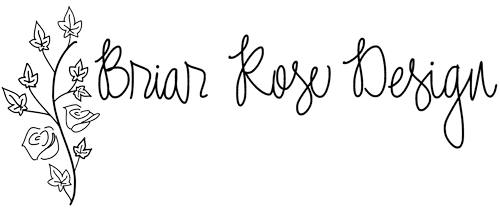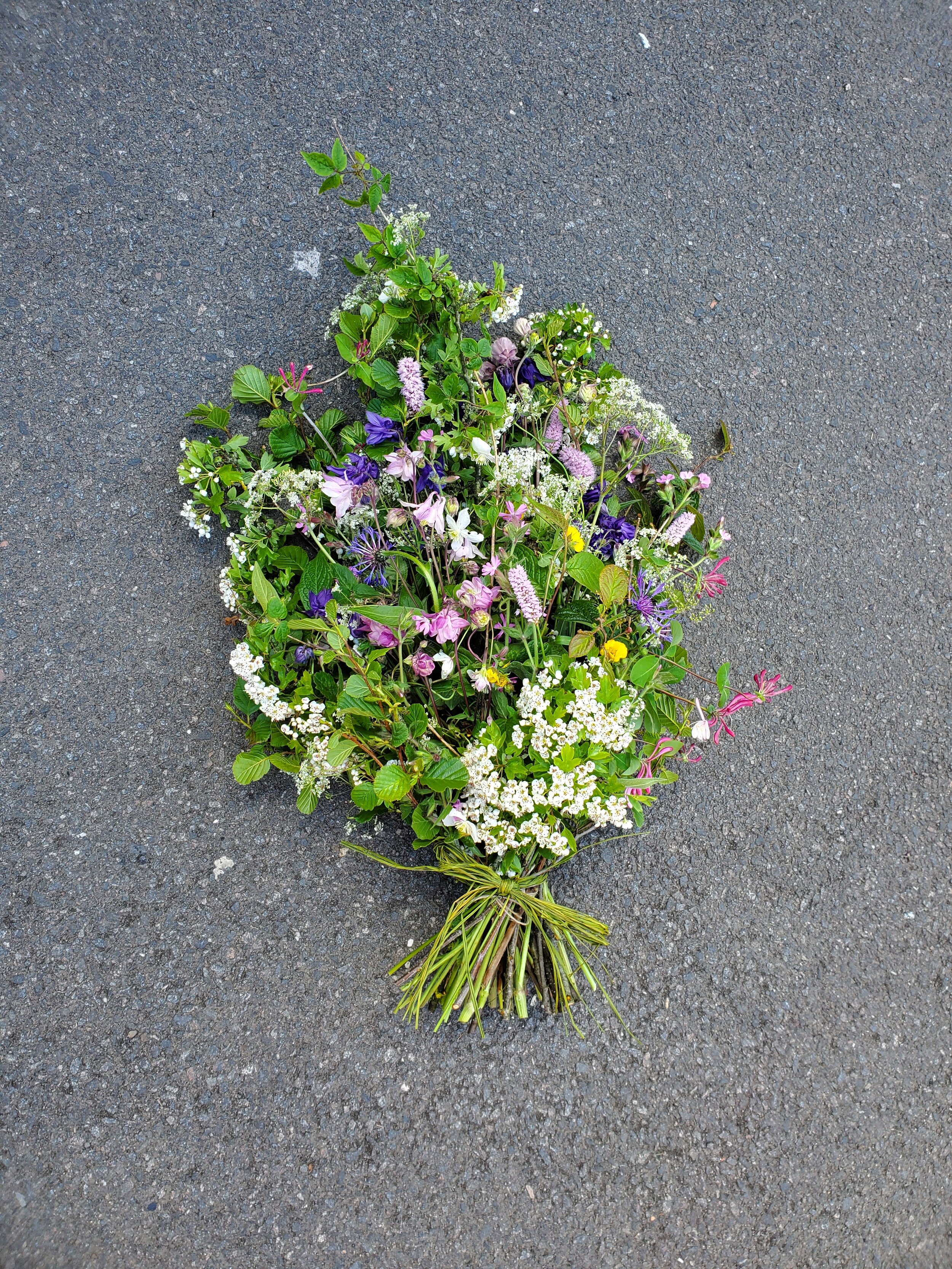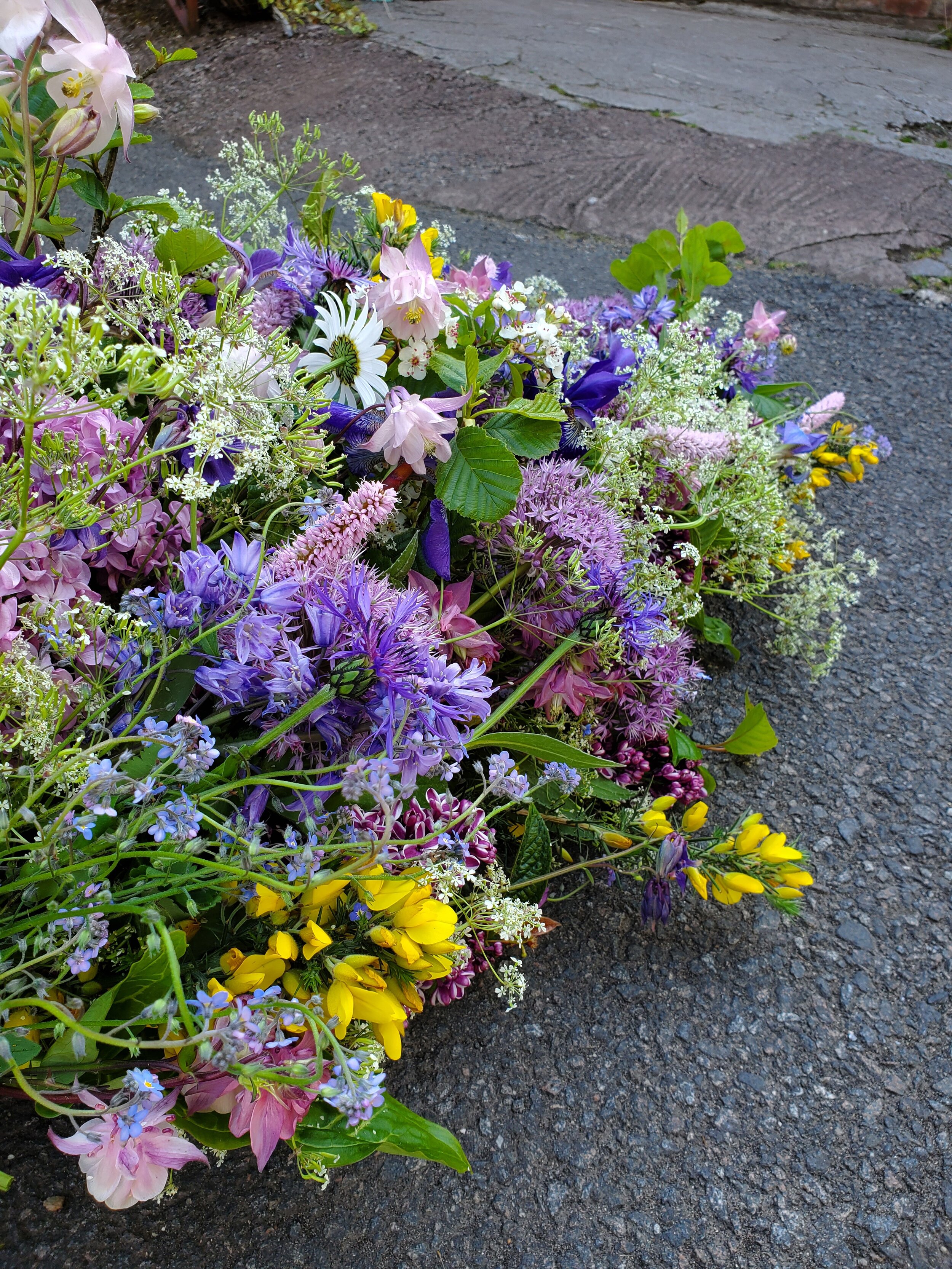15- 21 June 2020 marks this year’s British Flowers Week, an annual event to celebrate the variety and beauty of British grown cut flowers, foliage and plants. You can find out more by visiting the British Flowers Week website or following #britishflowersweek
I thought I’d take the opportunity to explain why using British or, more often for me, Scottish grown flowers is such an important part of my business. This is definitely not a post that seeks to judge the many florists that don’t buy British, but hopefully it will help you understand why they are so central to my business and style of floristry, and why if you are looking to have a more sustainable wedding they should be a consideration in your wedding planning. In this first post I want to talk about seasonality, variety and cultivation.
Photo by Ed and Aileen Photography
Seasonality
Working with British grown materials, whether grown in the Briar Rose Cutting Garden or by other Scottish growers, has made me much more in touch with the changing seasons. When you buy imported flowers you can get materials almost all year round and out of season, which can give people the wrong idea of what is actually naturally available at that time of year. You often see people tagging photos of “seasonal flowers” with imported materials in the designs that aren’t seasonally available in the UK. What they mean perhaps is seasonal colours but that is a different thing entirely. Although I champion British grown flowers I do still buy imported flowers, particularly in the late autumn and winter months, to top up what I can buy from British growers. However I try to make it clear when the materials I use are grown in the UK or not when talking to customers or posting online.
A bit like when you buy strawberries in season from a local pick your own farm or roadside stall and they taste a million times better than when you get them in December flown in from another continent, the flowers that are grown locally and seasonally are much happier and more reliable in my opinion than those which have had international journeys and are not in season. This does mean that I don’t tend to tell couples exactly what will be in their bouquets, rather I will work with a colour palette and the best of what is seasonally available.
Non GM flowers
The flower industry has been going since Roman times and humans have always in one way or another cultivated flowers. We have encouraged and bred certain varieties over others because of their colour, vase life etc but in today’s high tech world some varieties of flowers – particularly gerbera- can be grown from tissue in labs. Flowers can be harvested by machine and have been bred to such an extent that they will have identical stem lengths and widths, thorns equi-distanced, and the scent removed as this can shorten vase life. As someone who works in a natural and wild style, there is something about this that makes me sad. The wildness of the flowers has been lost and one of things I love about British grown flowers is that they still feel like they have soul. I like the variety and imperfection of flowers that have not been grown in a lab. A rose seems a bit less romantic if it is factory produced and you know that it is identical to thousands of others grown in that poly tunnel.
Variety
When I first started buying British flowers I bought mixed buckets of flowers from Paula at Millpond Flower Farm precisely because I knew she would include all sorts of wonky stems and floral misfits that I loved but would never make it into a wholesale bunch. This suited my style of floristry and I liked the challenge of working with unruly stems. She would sometimes find the weirdest, bendiest thing in the field that week and challenge me to use it in that week’s designs. All of these weird and wonderful quirks of nature make every stem individual and give the designs I make with them character. No two bouquets will ever be the same because the stems that go in them are all unique. I think there is something much more valuable and romantic about having a bouquet full of the best local produce that you know is a complete one off. No other bride will have the same bouquet.
Buying flowers from local growers has opened me up to all sorts of varieties of flower and possibilities of materials that just do not appear in the wholesale imported market. I can buy in single stems rather than wraps of 25 or 50 so there can be much less wastage, and because the journey from field to vase is much shorter I can use more fragile wild flower style varieties which suit my style.
British grown natural funeral flowers
This commitment to working with local seasonal flowers also extends to my funeral work, and it means I can create really unusual and unique designs that you are unlikely to see in the usual funeral director’s catalogue. I often do funeral designs to celebrate people who loved their garden, allotment or the outdoors because their relatives want to capture this passion in the floral tribute, and working in British grown flowers really helps me do this. I also offer to cut flowers from the garden of the family so that something really personal can go into the designs.
Next in my series of British Flowers Week blogs I will talk about supporting local businesses and why that’s important to me and my business. If you’d like to talk about wedding flowers or funeral flowers take a look at my wedding flowers gallery, or my natural funeral flowers instagram, or get in touch.




